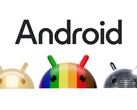With an increasing number of pundits claiming that AI will put most programmers out of a job soon, it is easy to fall into believing that learning to code is a bad investment of one's time. Reality begs to differ, and programmers (especially good ones) continue to enjoy numerous perks including more than decent wages. It is comparatively easy for a coder to find a job overseas and relocate, and, unlike it is with dentists or lawyers, becoming one does not take many years.
Below is a joint list of the most popular programming languages as analyzed by the IEEE and PYPL. While we do not doubt the authenticity of their findings, we can't help but stress that some programming languages are very important even if they do not feature highly in the rankings; Apple's Swift, the language used to make apps for Macs and iPhones, is but one example of what we are talking about.
Are you a techie who knows how to write? Then join our Team! Wanted:
- Specialist News Writer
Details here
Most popular programming language #1 -
Python
Python is a diverse language. It can be used for small personal projects and for making a massively popular data processing platform alike; Python code can be found in lots of products, including games such as Eve Online.
Hello, World in Python:
print('Hello, World!')
Top 10 Laptops
Multimedia, Budget Multimedia, Gaming, Budget Gaming, Lightweight Gaming, Business, Budget Office, Workstation, Subnotebooks, Ultrabooks, Chromebooks
under 300 USD/Euros, under 500 USD/Euros, 1,000 USD/Euros, for University Students, Best Displays
Top 10 Smartphones
Smartphones, Phablets, ≤6-inch, Camera Smartphones
Most popular programming language #2 -
Java
Java takes the second spot in both of the rankings. Thanks to its platform-agnostic nature, Java can be used to write games, apps, cloud computing services, pretty much anything, and the resulting code will run on anything except potatoes without any need to rewrite and recompile huge portions of the code. Android apps are essentially Java apps, too. The downsides include increased requirements for CPU muscle and RAM.
Hello, World in Java:
class HelloWorld
{
public static void main(String[] args)
{
System.out.println("Hello, World!");
}
}
Most popular programming language #3 -
JavaScript
While JavaScript is platform-agnostic, just like Java is, and has a similar-sounding name, it is used for a different set of tasks. We would not have all these modern-looking, responsive websites we are used to seeing nowadays if it was not for JavaScript. Among other things, JS code is responsible for safely transferring data from the user to the server.
Hello, World in JavaScript:
<script>
console.log('Hello, World!');
</script>
Most popular programming language #4 -
C family languages
C, C++ and C# are mostly used to build software that will run on Windows machines. Games, Internet browsers, video editors, you name it, most applications used daily by people around the globe on their PCs were built with a C family programming language.
C and, to a lesser degree, CPP and C Sharp, treat CPU cycles with respect, making for good performance. The downsides are mostly limited to inherent deficiences on the security front.
Hello, World in CPP:
#include <iostream>
using namespace std;
int main()
{
cout << "Hello, World";
return 0;
}
Source(s)
Image credit: KOBU Agency on Unsplash


 Deutsch
Deutsch English
English Español
Español Français
Français Italiano
Italiano Nederlands
Nederlands Polski
Polski Português
Português Русский
Русский Türkçe
Türkçe Svenska
Svenska Chinese
Chinese Magyar
Magyar







